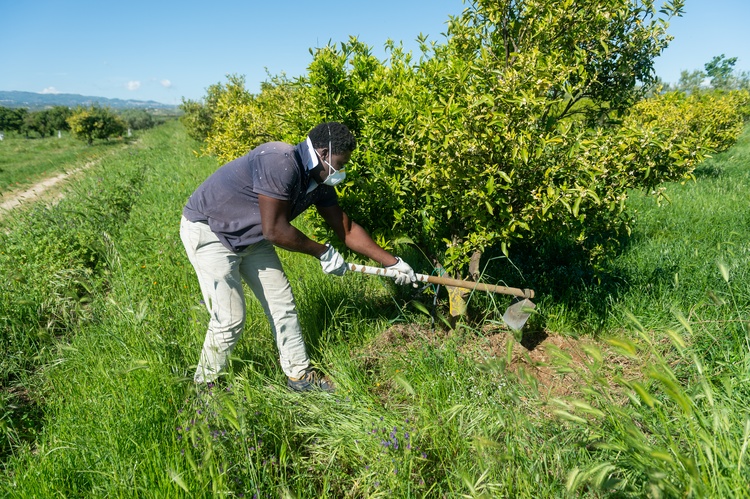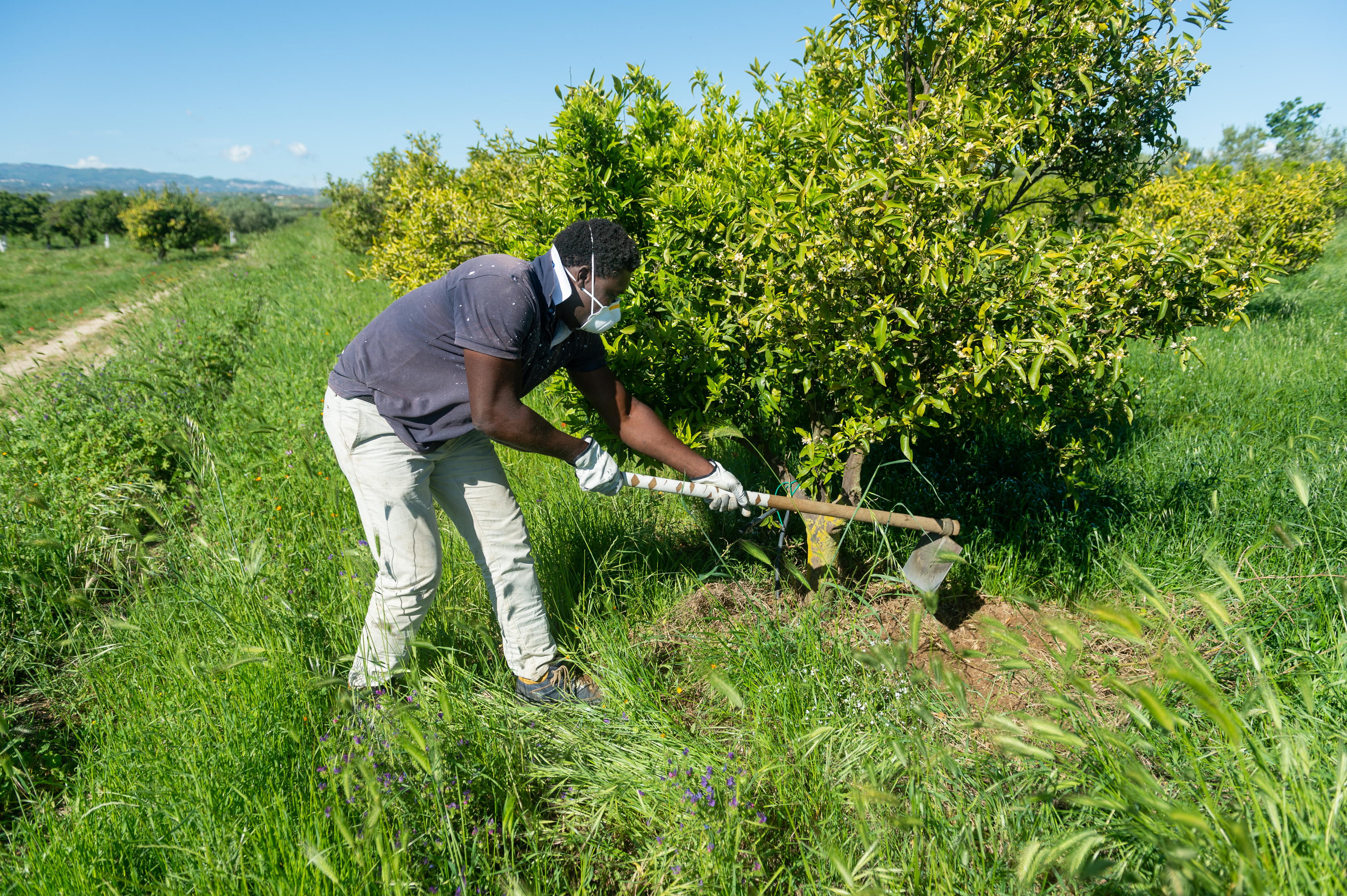The move came as part of a €55 billion stimulus package approved last Wednesday by the coalition government to cushion the Italian economy, which has been paralysed by the pandemic.
Italy has seen one of the largest outbreaks of the virus in the world, with over 225,000 confirmed infections and more than 32,000 deaths to date.
With infections appearing to ebb, the government is now grappling to get people back to work as it gradually lifts the drastic measures introduced to curb the outbreak.
There are around 560,000 migrants living in Italy without work permits or residency documents, according to 2019 figures.
The new policy allows the regularisation of undocumented people working in agriculture and as home carers.
Residency permits issued under the policy will be valid for six months.
“We have reached an important result,” Prime Minister Giuseppe Conte said in a news conference after a cabinet meeting.
“This is a battle of civilisation because at its centre lay people’s dignity, the fight against criminal organisations, against caporalato [a system based on the recruitment and exploitation of workers], the immersion of black work and the protection of employers’ and workers’ health.”
But before it passed, the measure heightened tensions between Italy’s major parties, with three centre-left parties supporting the move and the anti-establishment Five-Star Movement (M5S) opposing it.
Prior to the formation of the current government, the M5S was allied with the far-right League Party led by Matteo Salvini, a central figure in hardline anti-migrant and refugee politics in Italy and Europe.
The M5S opposed the path to legal residency for undocumented migrants on the grounds that it would benefit employers who had engaged in illegal employment practices.
Italy is a facing a massive seasonal labour shortage at a time when the European Commission forecasts its economy will shrink 9.5 per cent this year.
Harvest season is approaching across the nation for vegetables and fruit such as strawberries, peaches, apples, pears, kiwis and, later in the summer, tomatoes and grapes.
The 370,000 legal workers who normally arrive from abroad are largely unavailable and may need to face quarantine even if they do come.
As a result, Italy is now at risk of losing 25 per cent of its harvest, according to Italian agriculture association Coldiretti.
Italy has long been at the centre of Europe’s ongoing debates over migration.
The creation of a pathway to legal residency for undocumented people during the coronavirus crisis may be seen as a positive development for migrants’ rights.
Supporters of the move argued that it would protect undocumented workers by giving them access to healthcare and social services during the pandemic and help combat labour exploitation.
But some human rights groups have decried the temporary nature of the amnesty.
“A time-limited amnesty is just a patch, an absurdity which gives priority to production over dignity,” Cesare Fermi, director of migration programmes for INTERSOS, said.
Calling the measure “a lost chance”, Fermi added: “How will the workers' conditions change once the permit is over?”
The organisation ActionAid also criticised the decree, calling it “utilitarian”, and saying it put “market interests before the rights and lives of foreign citizens”.
Italy has declared its ports unsafe due to the virus, impeding efforts to rescue asylum seekers and migrants fleeing Libya during the pandemic.












